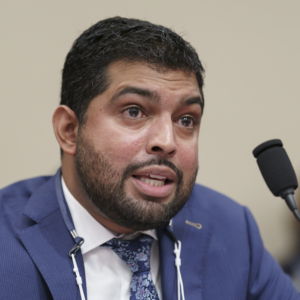Ensuring Fair Taxation of the Ultrawealthy to Strengthen Our Nation
September 12, 2024
By Indivar Dutta-Gupta
Below is an excerpt from Indivar Dutta-Gupta’s testimony before the United States Senate Committee on Finance on September 12, 2024.
Watch the hearing: The 2025 Tax Policy Debate and Tax Avoidance Strategies
Thank you, Senator Wyden, Senator Crapo, and members of the Senate Finance Committee. I am a Doris Duke Distinguished Visiting Fellow at the McCourt School of Public Policy at Georgetown University and a Tax Fellow at the Roosevelt Institute. I am honored to testify before this committee as it considers medium- to long-term tax reform for 2025. My testimony will draw from my experiences analyzing and developing policies to reduce extreme economic, racial, and gender inequality in ways that strengthen our nation by advancing fairness and prosperity together. This experience includes policies that have been enacted, such as bipartisan improvements to the Child Tax Credit and Earned Income Tax Credit over the past 15 years, as well as those under consideration now to rebalance the economy to strengthen the working and middle class, such as pricing greenhouse gas emissions, higher corporate taxes, and taxing more economic income. My testimony is intended to provide helpful context and provides ideas for moving forward on a bipartisan basis to ensure that the tax system supports a democracy and an economy that work as well as possible for the American people.
Overview
This testimony highlights the need for policymakers to utilize the tax system, including by ensuring that the ultrawealthy pay fair taxes, to reduce economic inequality in ways that can be expected to raise living standards across the board. My read of the growing body of research on economic inequality in our country today—exemplified in part by the enormous and undertaxed wealth of a miniscule fraction of the 337 million people in our country1—is that economic inequality today is extreme and harms the working and middle class.
